Allowable Expenses For Landlords
New landlord’s often ask us about the tax implications of renting out a property they own or are investing in buy to lets. The simple answer is that you must pay income tax on the rental income.
You can do this by registering for self-assessment and completing a tax return for the appropriate tax year or by using an accountant. How much tax is due will depend upon your personal circumstances and which tax bracket you are in.
There are ways of reducing your tax bill by offsetting some of the money you spend on your rental business against your income – in other words by claiming tax deductions as allowable expenses.
If you are new to rules about tax and rental income, read on for more details about what can and cannot be claimed as allowable expenses for landlord’s.
What are allowable expenses?
Allowable expenses for landlord’s are costs which have incurred exclusively as a result of letting out the property.
Which landlord expenses are allowable?
Items classed as allowable expenses are the day-to-day costs of managing the tenancy. They are usually items which won’t add to the value of your asset (the rental property) in the long term. Examples include:
- Insurance – Landlord insurance, building and contents insurance, rent protection
- Accountants Fees
- Letting agent and property management fees
- Ground rent and service charges
- General maintenance and repairs – The cost of maintenance and repairs to the property but not the cost of improving the property – HMRC makes a clear distinction between the two.
- Utility bills – if they are included in the rent you charge. If not, you can only claim for the parts of the year the property was empty.
- Travel costs – petrol, trains
- Direct costs associated with the tenancy – Telephone bills stationary, advertising – can only claim the costs incurred for the purposes of the rental.
Remember, allowable expenses for a landlord must be exclusively the result of renting out a property.
Which landlord expenses are not allowable?
Mortgage Payments: Landlords cannot claim the cost of paying their mortgage as a business expense – and thanks to changes that have been gradually rolled out since 2015, private landlords can no longer claim the interest paid on the mortgage payments either.
Personal expenses: You cannot claim for personal expenses that are not incurred as part of managing your property business – for example, your home broadband and mobile phone bill for the time when you are not carrying out your landlord role.
Capital Expenses: Capital expenses are the expenses involved in buying or improving a property and are not allowed. For example, if you buy a property in a rundown condition and refurbish it in order to let it, you will not be able to claim the costs of these works as an expense.
Relief for replacing domestic items: If you need to replace certain items in your property, you might be able to claim tax relief for the cost of the replacement. This includes:
- Moveable furniture such as beds, sofas and tables.
- Furnishings like curtains, carpets and floor coverings.
- Household appliances like fridges, cookers and TVs.
- Kitchenware, such as plates, knives and forks.
You can claim this tax relief whether you let your property furnished, part-furnished or unfurnished — but not if it’s a furnished holiday rental. In this case, you may be able to claim capital allowances on these costs instead.
In order to qualify for tax relief, the item you buy has to be a like-for-like replacement for the old item. If the new item is more expensive, you’ll only get tax relief on the cost of the old one. For example, if you bought a new sofa for £500 but the old one only cost £300, you would only get tax relief on £300. The new item must also be exclusively for the use of your tenants, and the old one must no longer be available for their use.
It’s also worth noting that this tax relief only applies to the replacement of items. This means that if you fully fit out a property ready for a rental, you can’t claim tax relief on these costs.
Property Allowance
Landlord’s are entitled to an annual tax free allowance of £1,000 on income (turnover, not profit) generated from their rental property. While this sounds attractive in theory, in practice there are a number of exclusions that limit its application in reality.
In its most straightforward application, the property allowance provides full relief for landlord’s whose total income is less than £1,000 during the tax year. Individuals who qualify for full relief do not need to register with the HMRC or file tax returns (though it’s still important to keep personal records for reference).
The landlord is subject to self-assessment where rental income exceeds £1,000. In this scenario, the legislation provides for so-called partial relief. Individuals can either:
- Deduct the real cost of their property business expenses in the normal way, or
- Choose to claim the £1,000 allowance as a deduction from the taxable income.
If you claim partial relief, you cannot deduct any other expenses from your taxable rental income.
You can decide on a year-by-year basis which approach is the best to take according to your annual outgoings. If you incur few expenses when running your property (e.g. you have a single property with no mortgage that required few repairs and you didn’t incur any marketing costs), it might make sense to claim partial relief. However, if your operating costs exceed £1,000 then it is better to deduct your actual expenses.

